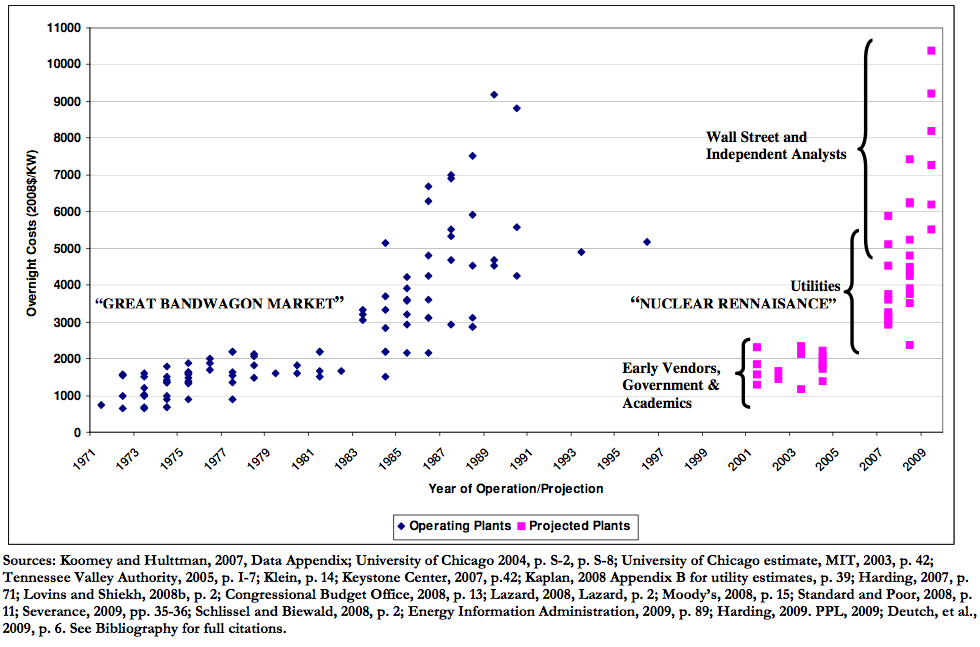Search Google:
"define: shill"
act as a shill; "The shill bid for the expensive carpet during the auction in order to drive the price up"
a decoy who acts as an enthusiastic customer in order to stimulate the participation of others
wordnetweb.princeton.edu/perl/webwn
A shill is person who is paid to help another person or organization to sell goods or services. The shill pretends to have no association with the seller/group and gives onlookers the impression that he or she is an enthusiastic customer. ...
en.wikipedia.org/wiki/Shill
A person paid to endorse a product favourably, while pretending to be impartial; An accomplice at a confidence trick during an auction or gambling game; To promote or endorse in return for payment, especially dishonestly; To put under cover; to sheal
en.wiktionary.org/wiki/shill
Many of the students in the Nuclear Engineering Department are watching their future jobs wither on the vine as a result of the Fukushima meltdowns.
And immediately after the disaster started, their students were "accidentally" used by pronuclear bloggers to circulate a fictitious letter trying to downplay the accident.
http://geniusnow.com/2011/03/15/the-strange-case-of-josef-oehmen/DO you think that students at the MIT Nuclear Engineering Dept. are unaware of, a little familiar with, or extremely familiar with the network of nuclear bloggers funded by the nuclear industry?
The MIT Nuclear Engineering Department is already on the hook for basically falsifying (they took anything the industry claimed as gospel fact) a pivotal study that was used to justify US Government support for a new effort to rebuild the nuclear industry.
Look at this graph. One of the 4 lowest pink numbers - the one that is at $1500 - is MIT. That number was used to lock in massive funding with the 2005 Energy Bill. Then look at what happened when independent (non-industry funded or affiliated) analysts started looking at the same set of circumstances with a critical eye after the money was locked in.

Jonathan Porritt, chair of the UK Sustainable Development Commission and advisor to Gordon Brown, says it does. "Cost estimates from the industry have been subject to massive underestimates�inaccuracy of an astonishing kind consistently over a 40-, 50-year period" (Porritt, Chair of the UK Sustainable Development Commission 2006). A UK-government commission agrees, claiming virtually all nuclear-cost data can be "traced back to industry sources" (UK Sustainable Development Commission (UK SDC) 2006). University of Greenwich business professor, Stephen Thomas, says nuclear-industry sources "are notoriously secretive about the costs they are incurring" (Thomas 2005). Such charges suggest the need to scrutinize industry claims that, to address climate change, nuclear power is "the most cost-effective power source" (European Atomic Forum 2006). - p 2
Consider first the nature of a COI. As defined (p. 6) in a classic 2009 US National Academy of Sciences report (Lo et al. 2009), "conflicts of interest are defined as circumstances that create a risk that professional judgments or actions regarding a primary interest will be unduly influenced by a secondary interest. Primary interests include promoting and protecting the integrity of research," the quality of scientific education, and the welfare of the public, whereas "secondary interests include not only financial interests...but also other interests, such as the pursuit of professional advancement." What happens when one applies this COI definition to nuclear-cost studies that are performed/funded by nuclear interests? The circumstances of the nuclear industry�s performing/funding nuclear-cost studies (whose results could affect industry profits) � may "create a risk that professional judgments or actions regarding a primary interest," scientific integrity, may be ��unduly influenced by a secondary interest," nuclear-industry financial interest. - p 13
-Climate Change, Nuclear Economics, and Conflicts of Interest
Kristin Shrader-Frechette
Journal of Science Engineering Ethics
DOI 10.1007/s11948-009-9181-y
A lot of people around here are saying that you can trust MIT and/or the DOE agencies working to promote nuclear power. Well, MIT might have some good information, but you should never forget who they seem to be working to protect.